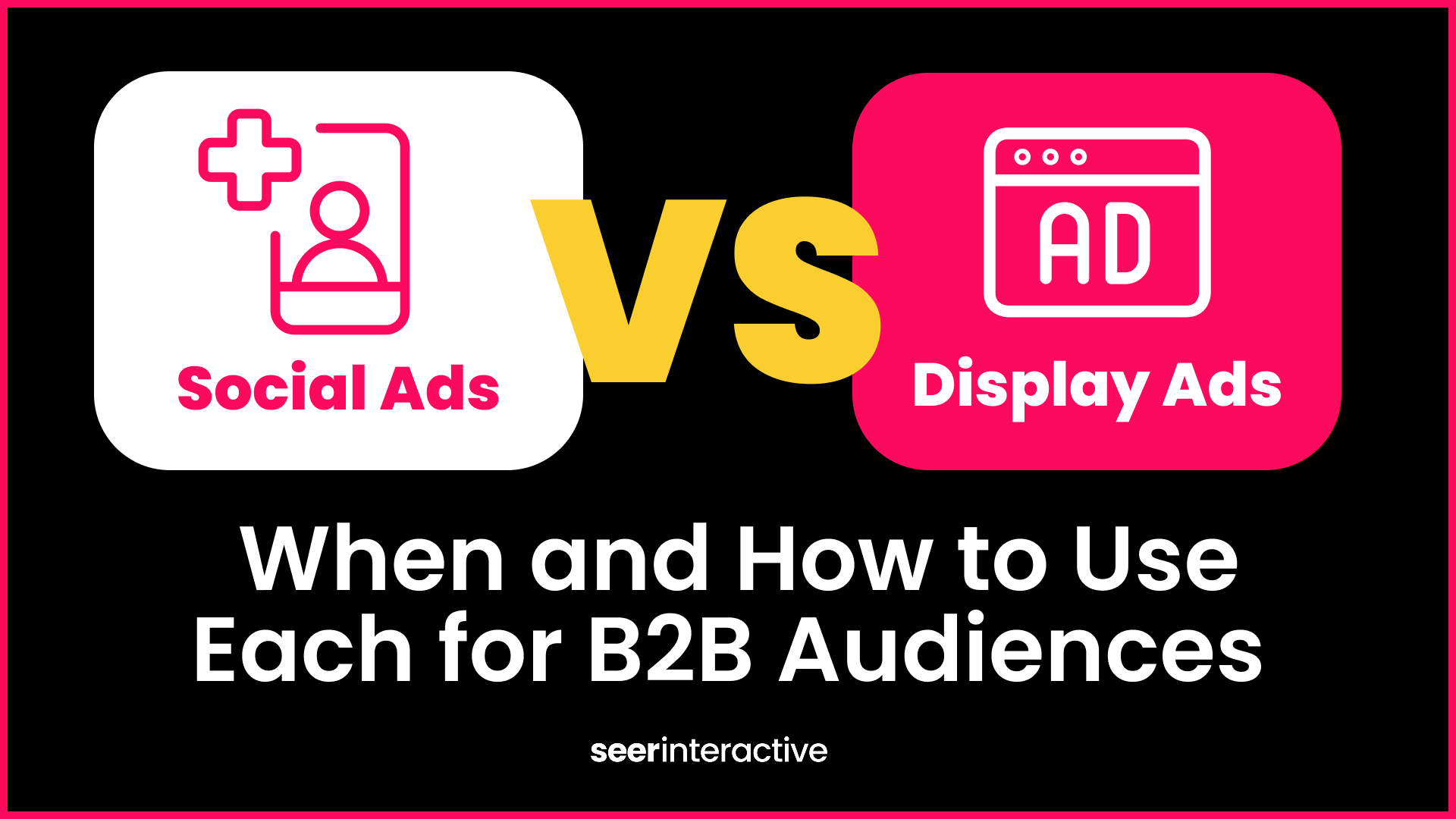Google Ads continues to evolve, which means we Paid Media Managers and our strategies need to as well. A higher-priority optimization that the Google team encourages is the simplifying of account structures. This includes bidding with automated strategies, aggregating ad groups/match types, expanding to Responsive Search Ads, and now bidding on Pure Broad Match.
We're sure you've seen this match type appear as a recommendation within Google Ads over the last several months. With the consolidation of Broad Match Modified with Phrase Match, Google is rightfully encouraging our team to lean into Pure Broad when possible. Google has called out that this keyword Match type can capture net new conversions at a CPA similar to Phrase or Exact when combined with automated bidding. Example of Google's recommendation below!
We tested Pure Broad Match on three accounts at Seer and wanted to share the results! Keep reading for a recap of what we found.
Pure Broad Match Keywords
Recommendations
💡 TL;DR: Exact and Phrase Match consistently drove more conversions at a lower CPA, although Pure Broad Match saw improvements PoP once negatives were put in place.
We recommend testing Pure Broad Match keywords when the campaign meets the below criteria:
- The campaign is also using audience targeting as part of an RLSA effort
- The campaign is not capped by budget
We found that Pure Broad Match keywords trigger terms that can be a bit too vague to drive efficient performance. That is why we recommend layering an additional level of audience qualification to better vet users before bidding on them.
Methodology
We set up campaign experiments running a 50/50 split between the control and experiment. The control leveraged Phrase and Exact Match keywords, while the experiment used only Pure Broad Match keywords.
Test A:
- Goal: Increase conversion volume for campaigns that were not meeting their budget goals.
- Hypothesis: Broad Match keywords would capture net new queries that weren’t currently being triggered by Phrase and Exact and drive more conversions at a similar CPA as the control campaign.
- Results: After the initial performance check-in (two weeks after launch), the Broad Match Experiment drove -50% fewer conversions than the control at a CPA +62% greater than the control. ROAS dropped by -47% as well.
We noticed Broad Match triggering some irrelevant queries, so we negated these in hopes that it would drive more relevant traffic.
After implementing the negative keywords, we conducted a second check-in one month after launch. The Experiment improved slightly, but was still performing significantly lower than the control: -36% conversions, +49% CPA, -37% ROAS.
These results were statistically significant, so we ended the experiment and chose not to move forward with Broad Match keywords in this instance.
Test B:
- Goal: Increase conversion volume for a campaign that was not losing impression share to budget.
- Hypothesis: Broad Match would capture net new queries outside of Phrase and Exact, and return more conversions at a similar CPA to the control.
- Results: After conducting the initial performance check-in when the experiment was live for two weeks, the experiment campaign generated a CPA of +52% higher than the control campaign.
Since the Broad Match keywords were seeing a significantly cheaper CPC, the thinking was to add negative keywords to the campaign to better guide the bidding algorithm and remove irrelevant searches.
When following up another two weeks later, the control campaign saw improvements, while the experiment did not generate any conversions during this time period. The search terms the keywords were matching to weren't the most relevant to the product/service being offered by the client.
We ultimately ended the test and are moving forward leveraging only Phrase and Exact Match keywords at this time.
Test C:
- Goal: Expand reach and volume for keywords struggling to generate traffic.
- Hypothesis: Duplicating existing campaigns which bid only on Broad Match terms will capture relevant queries outside of Phrase and Exact, and will boost volume at a similar CPA to the control campaigns.
- Results: After collecting a month of data, the Broad Match experiment saw a CPA 74% greater than that of the control campaign.
This test resulted in a similar conclusion as others, so we ended the experiment early and did NOT continue using Broad Match keywords.
In Conclusion
Overall, we're excited that Google continues to roll out new, intelligent ways of reaching more of the right customers at the right time. The Seer team is optimistic that with the right parameters in place (recommendations below), that Pure Broad can help bolster leads without driving up a client's CPA. We recommend testing through the following two methods:
- The campaign is also using audience targeting as part of an RLSA effort
- The campaign is not capped by budget
Google is always iterating on its products and working to improve the quality of its keyword targeting. While pure broad match keywords may be less effective in prospecting campaigns at the moment, they’re worth keeping an eye on and testing in the future! We are continuing to test this at Seer.


